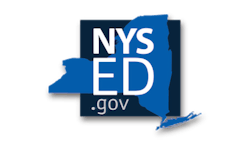New York state strengthens rules preventing schools from restraining or isolating students
The New York State Board of Regents has passed new regulations that prevent teachers from restraining students face down or isolating them alone in rooms they can't leave.
The Albany Times Union reports that the Regents’ vote comes after an investigation by the newspaper documented problems with public and private schools' use of the methods on students experiencing behavioral crises.
The Regents also revised rules governing how schools must report and train staff on the use of physical restraints, seclusion and timeout on students.
The regulations, which take effect Aug. 2, ban restraints in the prone position and seclusion, but they allow educators to place students in timeout -- removing them from a classroom to calm down as long as they are not placed in locked rooms and are monitored.
The regulations also limit the use of physical restraints and timeout to situations when there is an "imminent" threat of injury to someone. They allow schools to use small padded rooms called timeout rooms for isolating students in these situations. Previously, state rules permitted educators to use restraints to respond to property damage and maintain order in a school, if other methods did not work.
The rules require same-day notification of incidents to parents and a meeting with administrators after each incident to discuss how to avoid it in the future. All staff will be required to receive annual training in the school's restraint and timeout procedures.
A 2022 Times Union investigation found that some public school students were being subjected to restraint and isolation in timeout rooms frequently and for long periods of time -- often when there was no clear threat to safety.
Disability Rights New York, a group that provides legal services to people with disabilities, said the new protections are "long overdue."
"Students with disabilities need more protection; they are by far the most vulnerable to the misuse and overuse of these interventions, which can be highly traumatic," said Julie Keegan, director of the group's Protection and Advocacy for Individuals with Intellectual and Developmental Disabilities program.
About the Author
Mike Kennedy
Senior Editor
Mike Kennedy has been writing about education for American School & University since 1999. He also has reported on schools and other topics for The Chicago Tribune, The Kansas City Star, The Kansas City Times and City News Bureau of Chicago. He is a graduate of Michigan State University.
